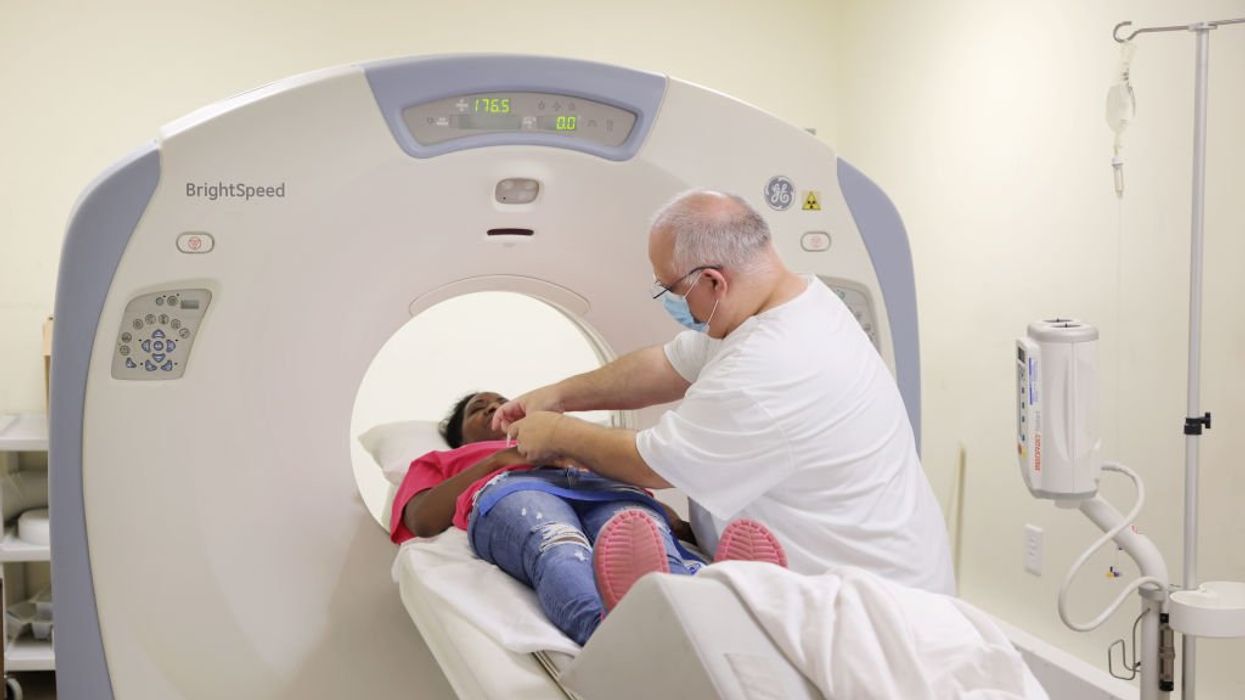
Photo by Travis Dove for The Washington Post via Getty Images

Americans are increasingly suffering cancer at younger ages.
The journal Nature noted last month that the number of early-onset cancer cases will increase by roughly 30% between 2019 and 2030. Additionally, colorectal cancer, which historically has affected geriatric men, is now the leading cause of cancer death among men under 50 and is now the second-leading cause of cancer death among young women. Uterine cancer has increase by 2% every year for the past three decades. Early-onset breast cancer has reportedly jumped by nearly 4% annually between 2016 and 2019.
"If it had been a single smoking gun, our studies would have at least pointed to one factor," said Sonia Kupfer, a gastroenterologist at the University of Chicago. "But it doesn't seem to be that — it seems to be a combination of many different factors."
Various possible factors have been considered, including rising rates of obesity; dietary changes and corresponding alterations to gut bacteria; sleep deprivation; increased alcohol consumption; and vaccines.
A study presented over the weekend at the American Association for Cancer Research Annual Meeting in San Diego suggested that the incredible spike in cancer among younger adults in the U.S. may be the result of "accelerated aging."
"We all know cancer is anaging disease. However, it is really coming to a younger population. So whether we can use the well-developed concept of biological aging to apply that to the younger generation is a really untouched area," Dr. Yin Cao, an associate professor of surgery at the Washington University School of Medicine in St. Louis and senior author of the research, told CNN.
Chronological age refers to the period of time an individual has been alive. Biological age, also known as physiological age, refers to the condition of a person's body and the state of his genetic material. A chronologically younger person who vapes, eats too much, doesn't get enough sleep, and/or is genetically predisposed to various diseases could, accordingly, find himself biologically older than someone who has seen many more sunsets.
While cancer has long disproportionately affected chronologically older people, Cao and his fellow researchers have come to suspect that the spike in cases of early-onset solid tumors among younger Americans may be the result of increased biological age, characterized by "accelerated aging."
"Multiple cancer types are becoming increasingly common among younger adults in the United States and globally," Ruiyi Tian, a researcher from WUSM on Cao's team, told the American Association for Cancer Research, referencing increased incidents of cancer in adults under the age of 55. "Understanding the factors driving this increase will be key to improve the prevention or early detection of cancers in younger and future generations."
"Accumulating evidence suggests that the younger generations may be aging more swiftly than anticipated, likely due to earlier exposure to various risk factors and environmental insults," continued Tian. "However, the impact of accelerated aging on early-onset cancer development remains unclear."
Tian and her colleagues examined data from nearly 150,000 people in the U.K. Biobank database and calculated each individual's biological age using nine biomarkers found in the blood: albumin, alkaline phosphatase, creatinine, C-reactive protein, glucose, mean corpuscular volume, red cell distribution width, white blood cell count, and lymphocyte proportion.
According to the Cleveland Clinic:
The researchers, whose study was supported by the National Institutes of Health, identified individuals whose biological age — as indicated by these biomarkers — was higher than their chronological age as having accelerated aging.
According to Tian and her colleagues, individuals born in or after 1965 had a 17% higher likelihood of accelerated aging than those born born between 1950 and 1954. They further found that "each standard deviation increase in accelerated aging was associated with a 42% increased risk of early-onset lung cancer, a 22% increased risk of early-onset gastrointestinal cancer, a 36% increase risk of early-onset uterine cancer."
Tian speculated that certain cancer types had stronger associations with accelerated aging because of the natures of the affected tissues. The lungs, for instance, have a limited ability to regenerate, making them more vulnerable to biological aging.
"If validated, our findings suggest that interventions to slow biological aging could be a new avenue for cancer prevention, and screening efforts tailored to younger individuals with signs of accelerated aging could help detect cancers early," said Tian.
The American Cancer Society revealed in its latest annual report on cancer facts and trends that over 2 million new cancer cases are expected to be diagnosed this year. In the previous three years, the estimate was 1.9 million.
Yale Medicine noted that younger adults are ostensibly the only age group with an increase in overall cancer incidence between 1995 and 2020.
This year, there are altogether expected to be 611,720 deaths from cancer in the United States.
Like Blaze News? Bypass the censors, sign up for our newsletters, and get stories like this direct to your inbox. Sign up here!